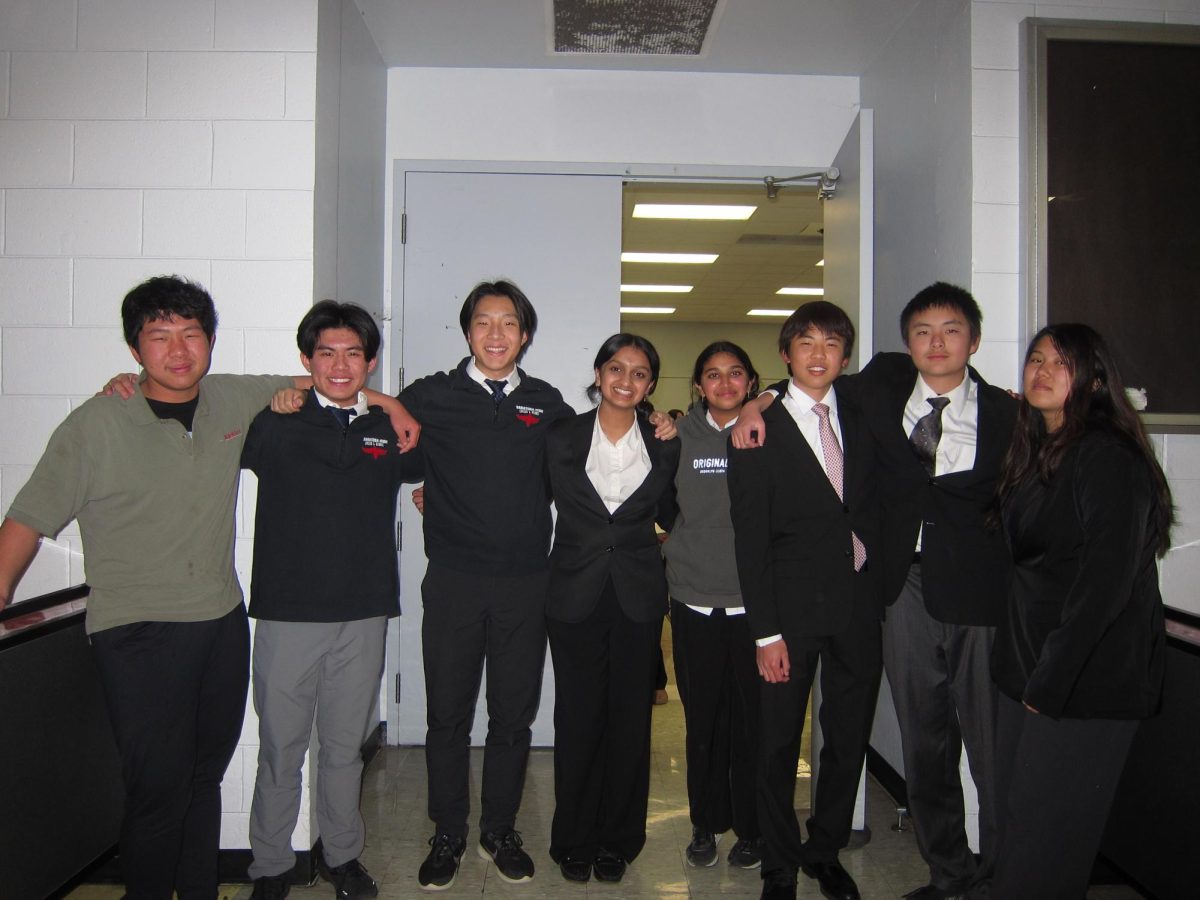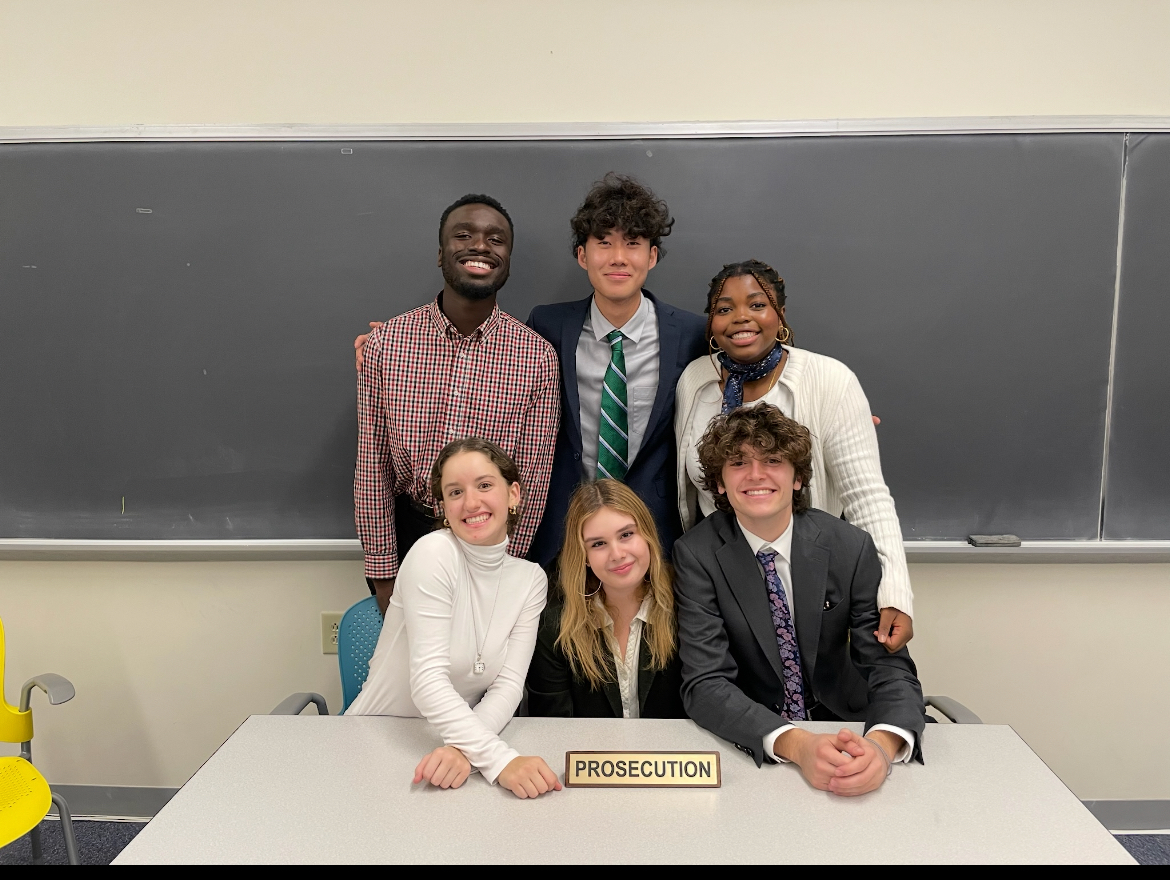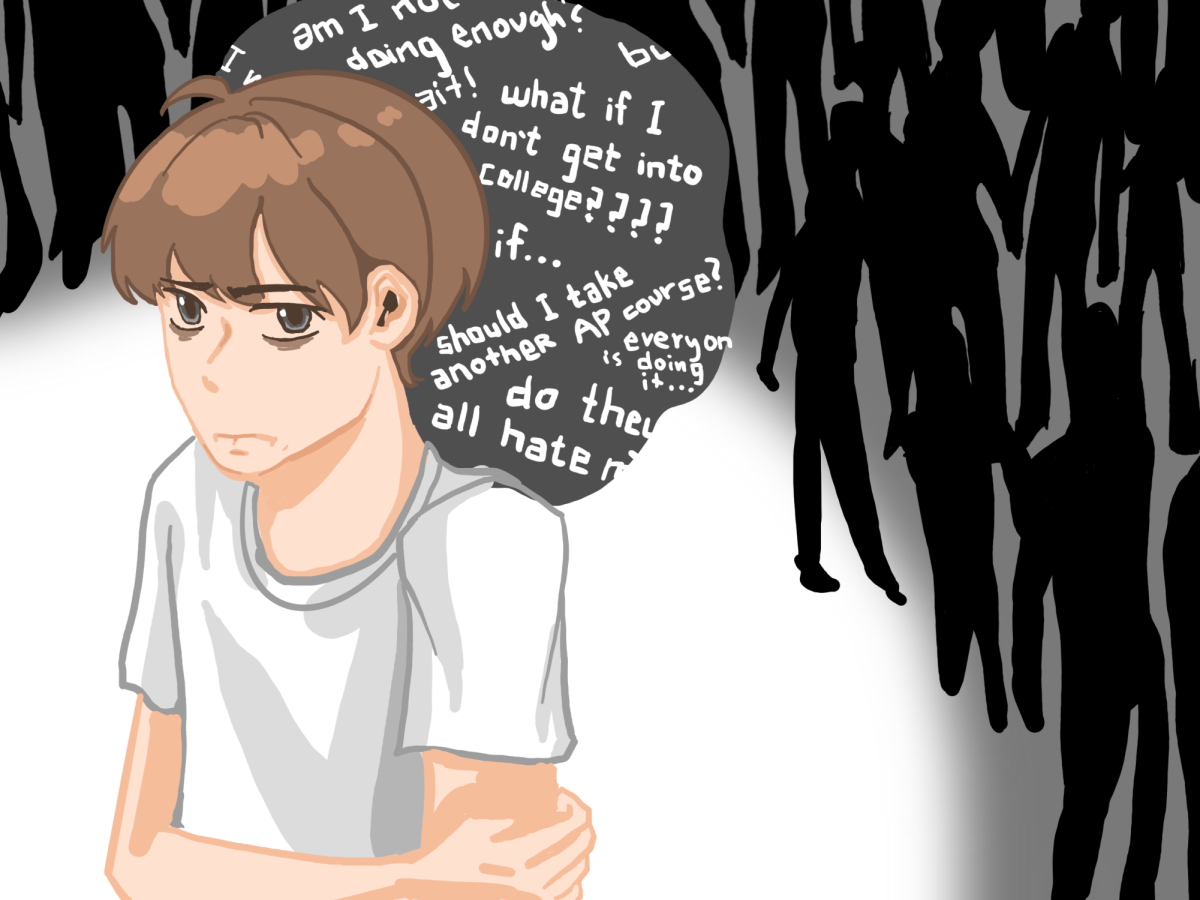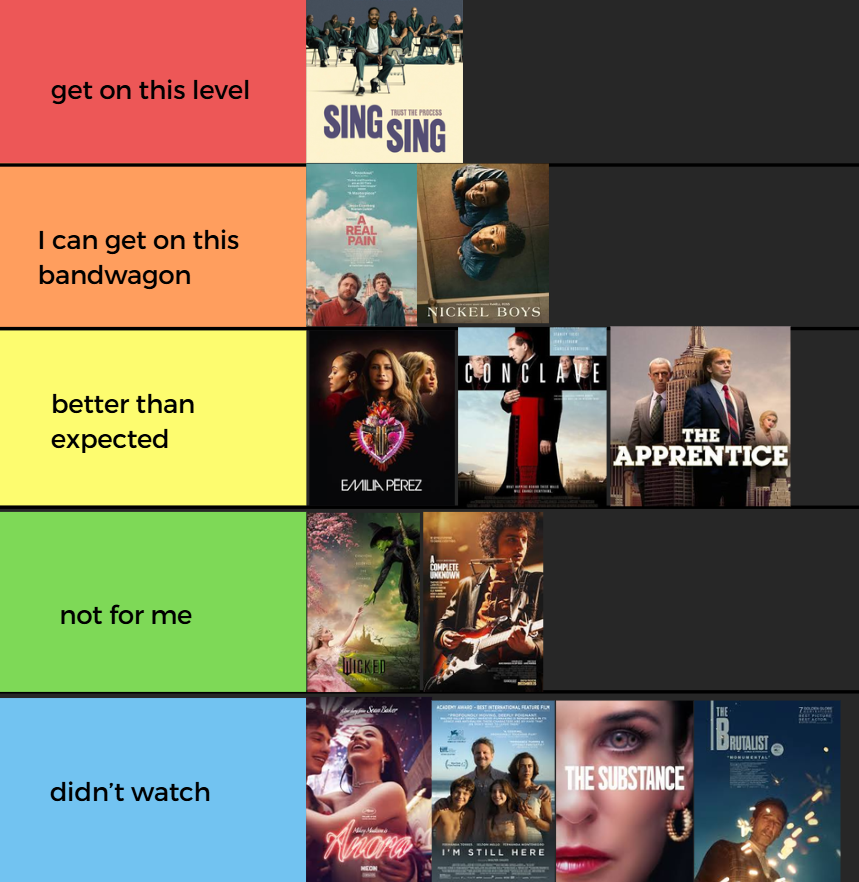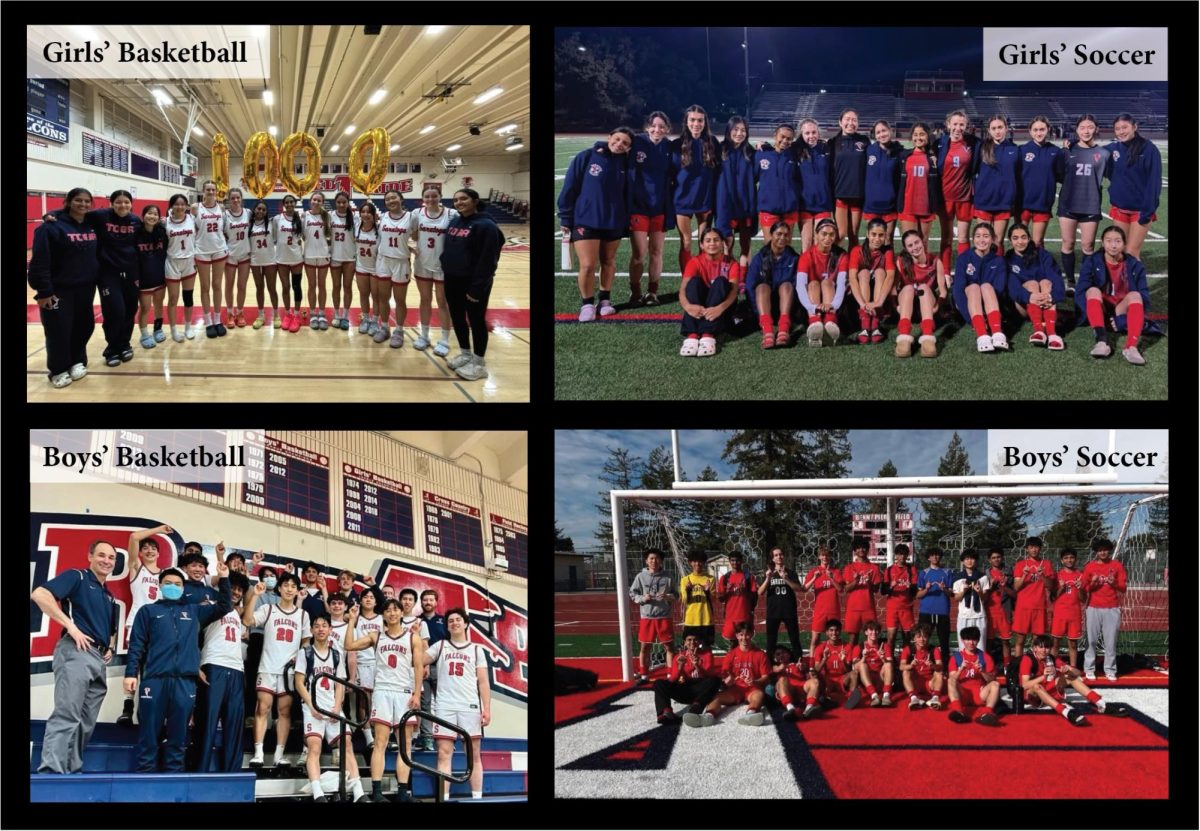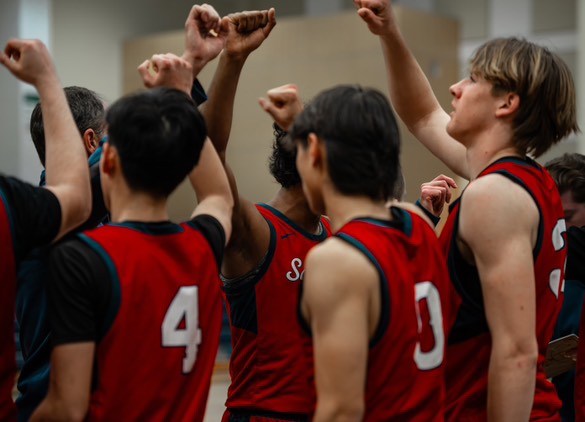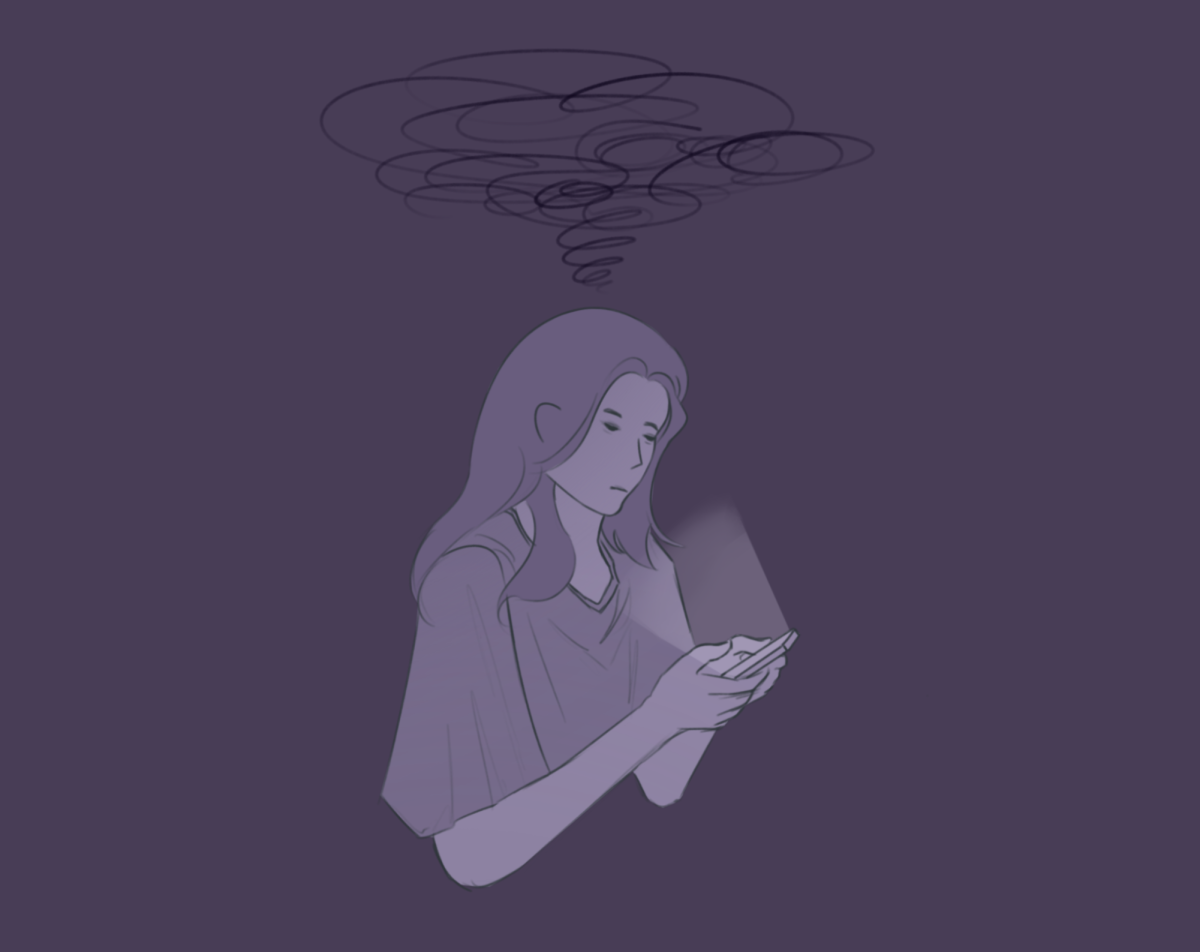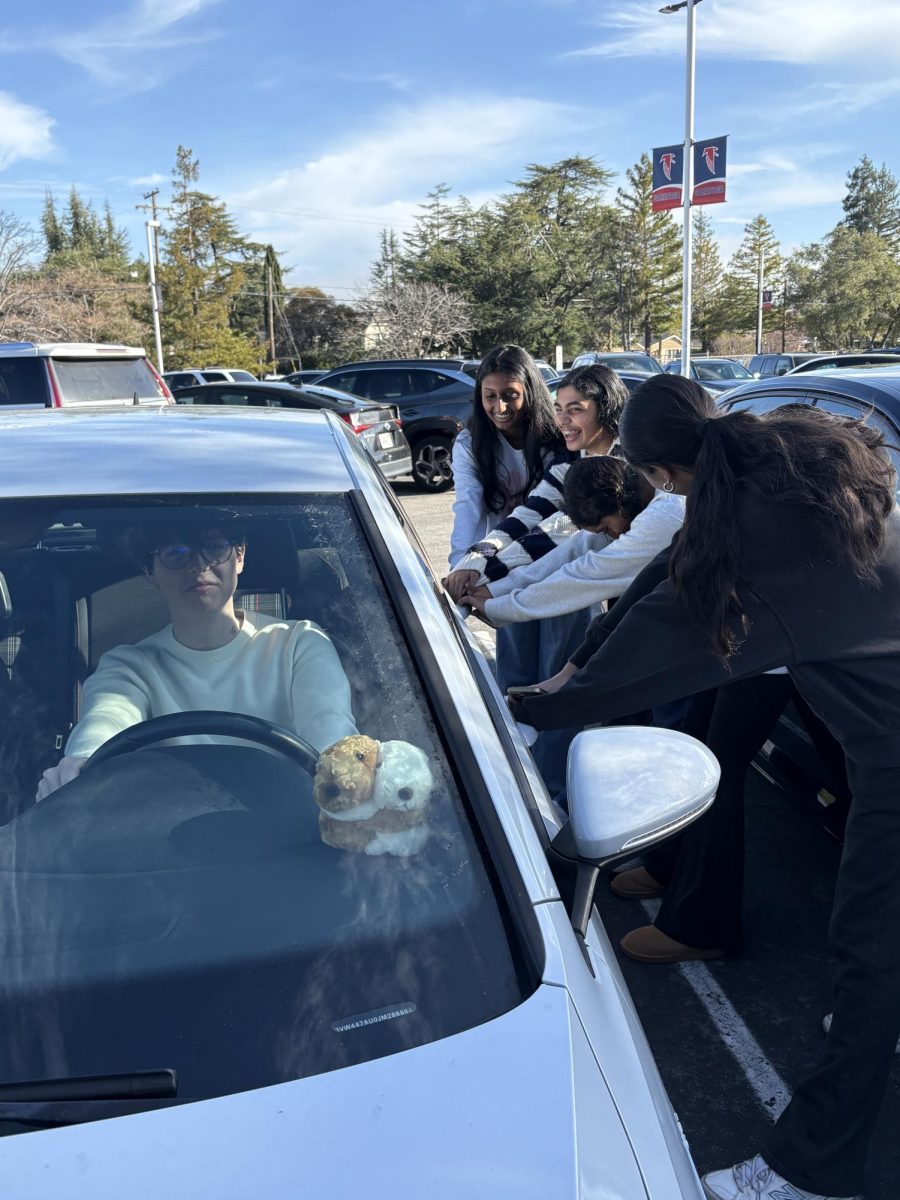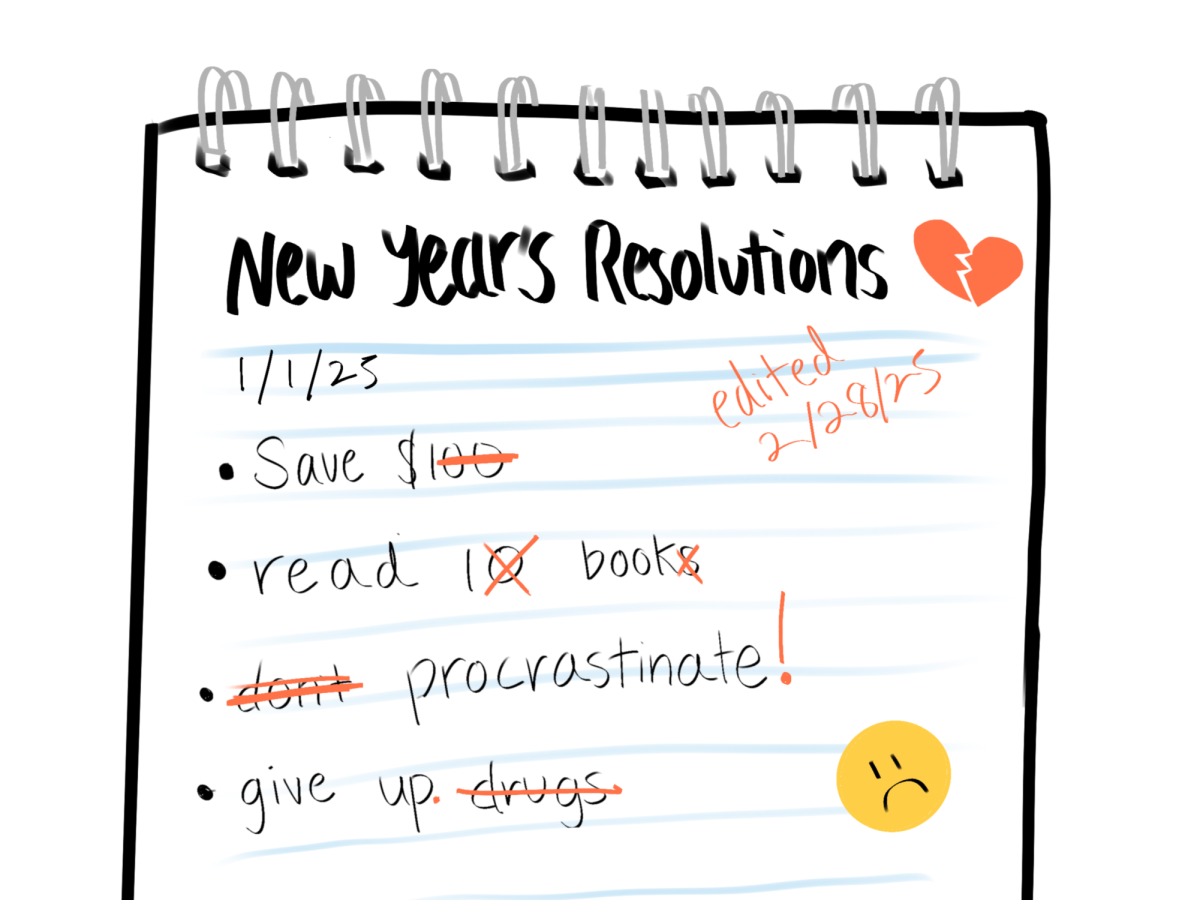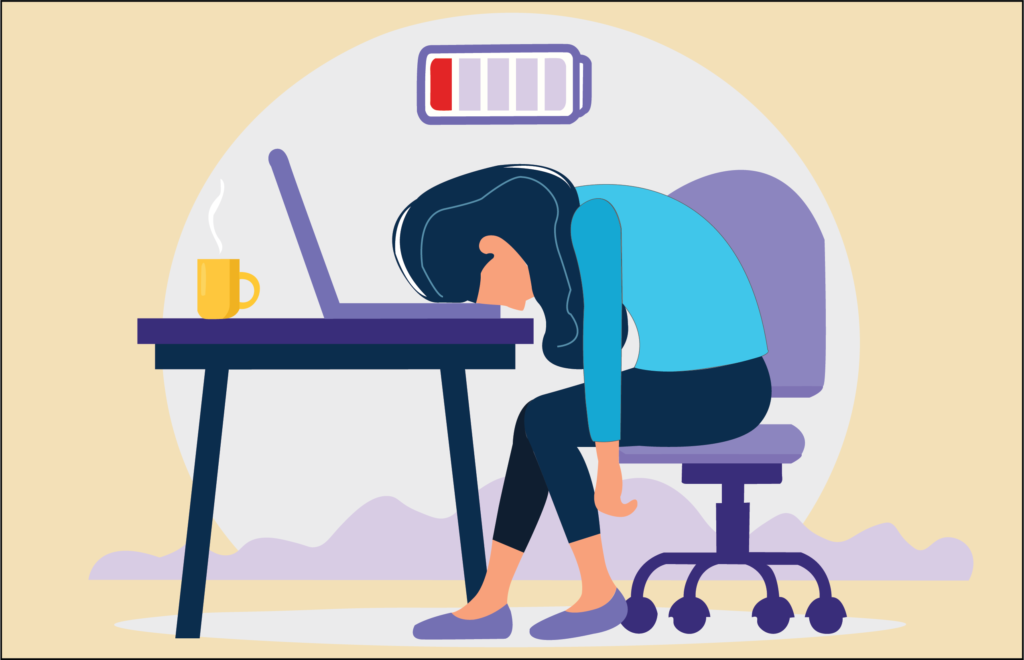A throbbing headache sears into sophomore Samika Agarwal’s burned out mind almost daily. She wakes up reluctant to log onto Zoom, the main source of her migraines. She said her eyes grow weak and her mind goes foggy as she stares at her computer screen, struggling to complete her schoolwork.
Agarwal has spent 10 months bearing the effects of Zoom fatigue, and handling the discomfort has not become much easier.
“I can’t wait until we finally don’t have to stare at a screen for six hours straight,” Agarwal said.
Students and teachers alike have started to feel the effects of schooling over Zoom after nearly a year of little to no in-person classroom interaction, with many limiting their outside social connections to stay safe.
Results of a poll surveying 45 students have shown that 97 percent are spending over six more hours on a screen with remote learning than in in-person learning. This monotonous, often eye-straining lifestyle has made school feel like a grueling task for some students.
One senior who requested anonymity said Zoom burnout was a slow and gradual process that worsened over time. At first, he was motivated and attentive during school. He recalls waking up 20 minutes before class, brushing his teeth, eating breakfast and avidly taking notes.
“I tried my best to treat online class as attending a real classroom in both junior year and first semester senior year,” he said.
However, after almost a year of this monotonous routine of being online, things started going downhill. He began going to sleep at 4 a.m. due to college applications in the fall, leaving him inattentive during classes. Soon, his morning routine fell apart as well.
“Now I wake up at the time my class starts, and I usually don't pay attention at all and play ‘Minecraft,’” he said. “Sometimes, I would attend class through my phone and sleep through class.”
Teachers have also found themselves spending too much time staring at a screen — from teaching and planning over Zoom and Google Meet to organizing their classes in Canvas, the school’s learning management system.
AP Biology and Chemistry Honors teacher Cheryl Lenz said she often teaches her classes with her eyes dry and tired, while struggling to focus in the virtual classroom.
To cope with the burnout, Lenz finds it beneficial to be physically active.
“I try to get up and move around or do something non-screen related, like go outside for a walk with my dog,” Lenz said.
Agarwal also said she has found it is important to take well-deserved breaks from school — what she calls “necessary procrastination.” She also tries not to watch TV while eating.
Although dealing with school online has been difficult for her, Agarwal said she realized that it has prepared her for future challenging circumstances.
“Zoom burnout has been really tough for me,” Agarwal said. “But learning to cope with it has made me feel stronger and more prepared for future experiences, like a tough college or job.”


